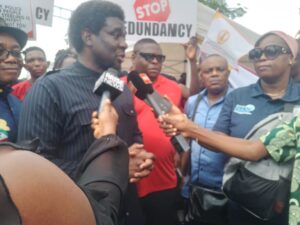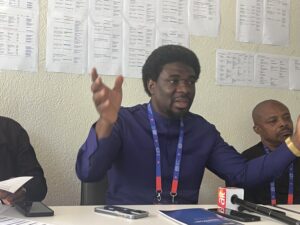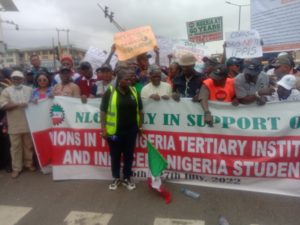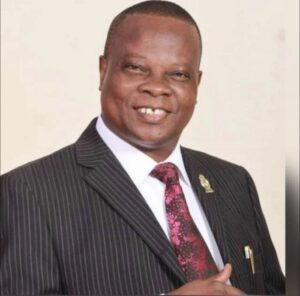Improve transport infrastructure, investment in informal economy – ASCSN tells FG
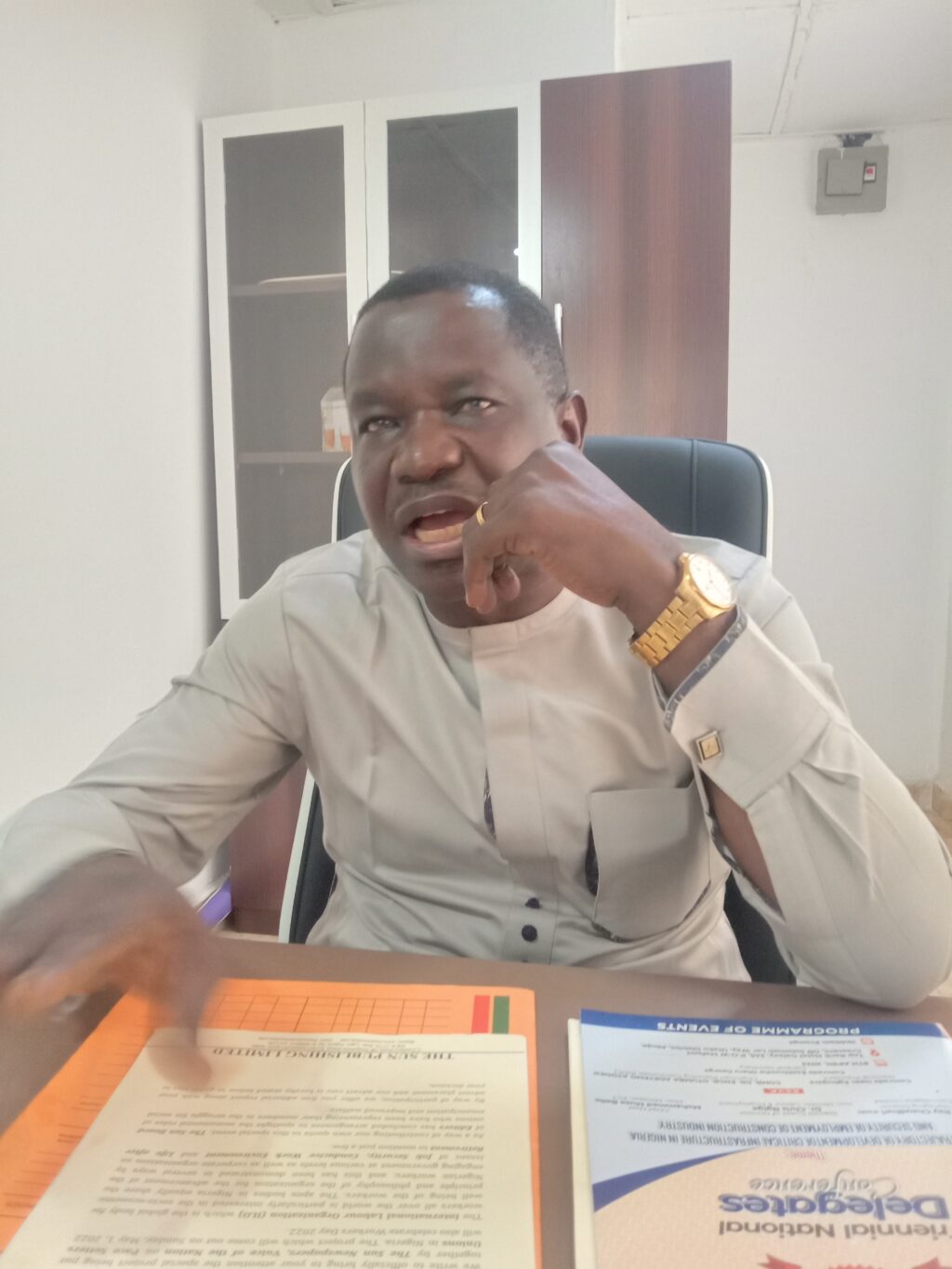
..berates Govt. over non-inclusion in palliative measures
With Nigerians groaning due to the impact of fuel subsidy removal, the National Deputy President of Trade Union Congress (TUC) Tommy Etim Okon has decried the neglect of organized labour by the federal government in its decisions concerning palliative measures to cushion the impact.
Okon, speaking at a forum with the Labour Writers Association of Nigeria (LAWAN) on Thursday complained that the government who initially set up a presidential committee involving the organized labour made up of the Nigeria about Congress (NLC) and Trade Union Congress (TUC) to discuss the best palliative measures did not wait for the recommendation of the committee before hurriedly taking decisions that was not ‘in the best interest of workers or the entire citizenry’.
According to him, “I was a member of the subcommittee on Cost of Governance, but as I speak, the meeting of that subcommittee has never taken place. The committee was given two months to submit its report, but we woke up one day and read in the newspaper that Mr. President has taken a step to approach the National Assembly for the approval of N500 million.”
“It is only proper for Mr. President to wait for the committee to submit its report. This is because that is the principle of collective bargaining and social dialogue. But that was swept by that simple act.”
Okon who is also the National President of Association of Senior Civil Servants of Nigeria (ASCSN), an affiliate of the TUC identified a trust deficit between the government and the people.
According to him, many people do not believe that the decisions and actions of the government were in the best interest of the nation.
“There’s trust deficit on the side of the people to their government. The Nigerian citizens are no longer convinced that the government means well for the country. So, the government needs to do more to reclaim the trust of the people.”
He lamented that the removal of fuel subsidy without a proper framework to cushion its effects left the entire workforce of the country in disarray. He therefore called on the Federal Government to develop road transport infrastructure to assist in cushioning the impact of the subsidy removal.
He said, “The major challenge we are having now is transportation. Once that is taken care of, it will reduce the cost of goods and services. Why can’t the government go into producing or purchasing mass transport systems, distribute it to the state and then the state in turn would distribute it to the local government?
“We are talking about electric buses that can take hundreds of passengers. Then they should take a step further to fix some of the roads so that the buses would be durable for long, train the drivers and within six months, we will start to see the positive impact of this.”
“The government can also study the informal economy for those who are into productive venture, invest money into them; that would make them employers of labour. This will checkmate and reduce unemployment, while giving them the capital they need.”
Okon who was also troubled by the unending borrowing behaviour of the government advised that they should cut down on economic waste by halting excessive borrowing from international communities to spend on problems that needed a more practical and localized approach.
“The earlier Nigerian leaders realize that no advice of the World Bank or IMF would improve the condition of Nigeria, the better for us,” he said adding that, “you cannot borrow us money that is not meant for productive venture and ask us to distribute the money. It does not make economic sense.”
This is even as he explained that throwing money alone into a particular problem does not solve it.
He noted that times have evolved, and that the government needed to introduce new, innovative ideas to address challenges in the country using statistical data and practical solutions while leveraging on technology.
